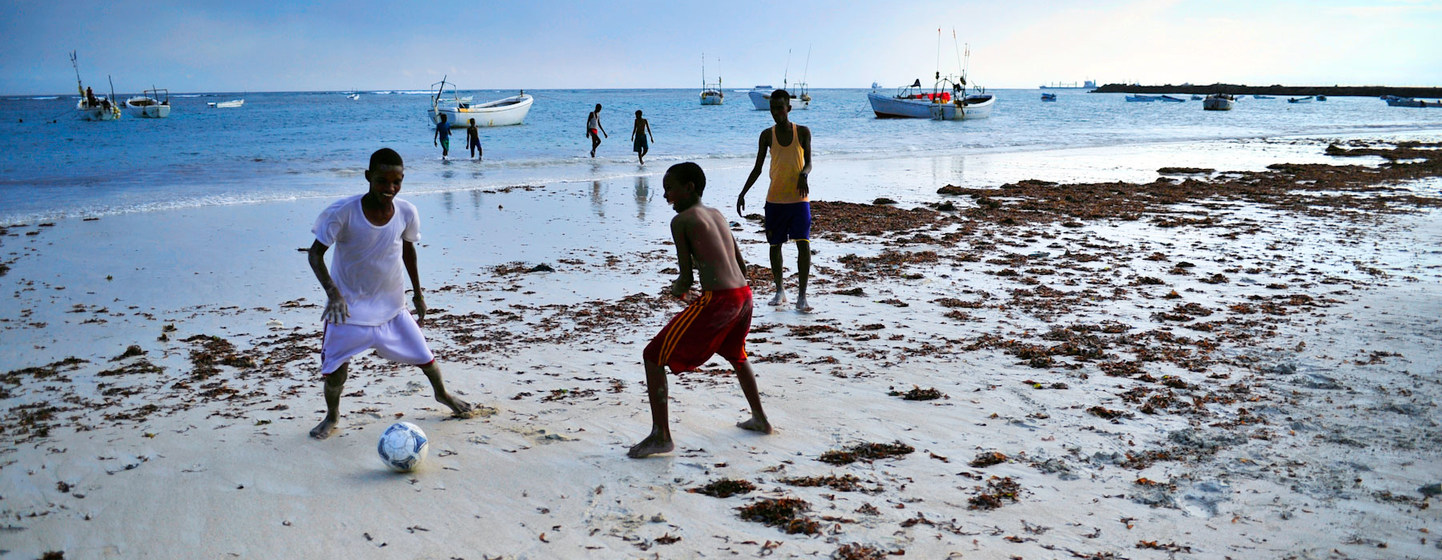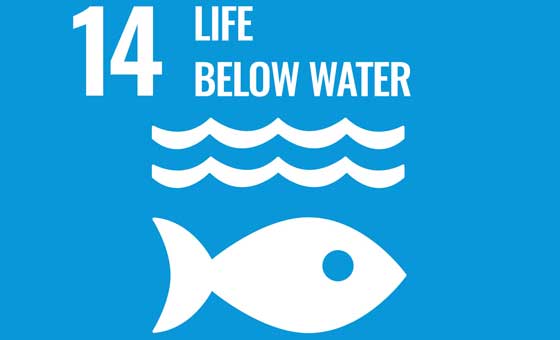INTERNATIONAL DECADE FOR OCEAN SCIENCE

By: UN News
Photo: UN/FAO
The health of the ocean will ultimately determine the survival of humankind on Earth, according to the UN Special Envoy for the Ocean, Peter Thomson. Marking the opening of the International Decade for Ocean Science, the former top Fijian diplomat and General Assembly president, told UN News that a healthy planet is inextricably linked to a healthy ocean.
How much more is there to discover about the ocean?
At the moment, only around 10 per cent of the ocean’s make-up is understood by science. In the years ahead, we will have some very important decisions to take on our relationship with this planet and we will need to make them on the basis of solid science. With the ocean covering 70 per cent of the planet, full scientific knowledge of its properties is clearly required. It is for this reason that the UN Decade of Ocean Science for Sustainable Development assumes such great importance for us all.
Throughout the Decade, the ocean science community will be called upon to play a central role in global efforts towards meeting the Sustainable Development Goals (SDGs), especially SDG 14 which focuses on conserving and sustainably using the ocean’s resources.
How crucial is the ocean to our future?
The UN’s Intergovernmental Panel on Climate Change (IPCC) special report on global warming tells us that once global temperatures increase beyond 2˚C above pre-industrial levels, we will lose the great majority of the planet’s living coral reefs.
Meanwhile, the World Meteorological Organization (WMO) warns us that on our current path of carbon dioxide emissions, we are heading towards a temperature increase of 3˚ to 5˚C by the end of this century. Coral reefs are home to around 30 per cent of the ocean’s biodiversity; thus their loss would be catastrophic for the ocean’s ecosystem.
The ocean plays a fundamental planetary role in mitigating the effects of climate change through its absorption of heat and carbon. This service alone makes the healthy functioning of the ocean’s ecosystems critical to all humans. This is true whether you live thousands of miles inland or are part of coastal communities that rely on the ocean for livelihoods. In short, the health of life on land is inextricably linked to the ocean’s health.
Which scientific developments are you excited about over the next ten years?
Ocean science is a very broad field and a huge amount will be happening in the field in the next decade. For example, it’s expected that a global effort to map the entire ocean floor will be completed by 2030.
The plan for the UN Decade has recently been approved and I’m excited by all it offers. This includes a clean ocean where sources of pollution are identified and reduced or removed; a healthy and resilient ocean where marine ecosystems are understood, protected, restored and managed; and a safe ocean where life and livelihoods are protected from ocean-related hazards.

Over the next ten years, from a comprehensive scientific understanding of the ocean and the genetic properties of life in the deep sea, I’m confident we’ll find the medicines we require for human security. I’m also convinced that when we get to know more about the ocean, we’ll be able to source new sustainable forms of seafood, rather than concentrating on our hunt for ever-diminishing wild stocks of finned fish.
In terms of energy, we can get ten times our energy requirements from offshore wind alone.
This is why it is crucial for us to fully understand the ocean ecosystem if we are to develop these elements of a sustainable blue economy. All of these developments will require adequate finance and the people making those funding decisions will want to see sound evidence of sustainable ocean planning before allocating funds. Such plans will have to be based upon reliable science, so the UN Decade of Ocean Science could not be more timely.
How is the scientific community getting involved with the Decade?
I come from Fiji, where I’ve been working with the Pacific’s regional institutions to ensure the Decade is a movement in which the Pacific Islands are fully involved. The Intergovernmental Oceanographic Commission of UNESCO (IOC), the UN body responsible for supporting global ocean science, has made it clear that a core objective of the Decade will be to improve the scientific knowledge base through capacity development to regions and groups that are presently limited in capacity and capability, especially Small Island Developing States and the Least Developed Countries.
The Decade will be a time of partnership, for philanthropists, universities and NGOs, for international organizations, governments and the private sector. I see it as a time to embed the partnership model that the UN has long been espousing through an inclusive, multilateral approach.
Given the growing importance of the Sustainable Blue Economy and the need for it to be governed with sustainability and science as its hallmarks, I’ve been encouraging young people around the world to consider ocean science as a worthy career-path. To have the science we need for the ocean we want, we will need dedicated communities of ocean scientists around the world.
What will happen to the ocean if no action is taken?
The ocean is becoming more acidic and its oxygen levels are declining, largely because of our burgeoning greenhouse gas emissions. Over time this makes living conditions for many marine species increasingly difficult. Meanwhile the ocean is warming, causing marine life to move away from traditional habitats, adding to coral’s existential challenges, and leading to the rising sea levels that threaten to inundate atoll countries, low-lying coasts and river deltas around the world.
These threats are very real and I think the urgency of the message is finally getting through. As I’ve said, good science is required to give us the information we need to make the right decisions for our future security.

Life Below Water and the UN
Conserving and sustainably using the oceans, seas and marine resources is the central focus of SDG 14 one of 17 goals of the UN’s 2030 Agenda for Sustainable Development.
- The world’s oceans – their temperature, chemistry, currents and life – drive global systems that make the Earth habitable for humankind.
- Our rainwater, drinking water, weather, climate, coastlines, much of our food, and even the oxygen in the air we breathe, are all ultimately provided and regulated by the sea.
- Over 3 billion people depend on marine and coastal biodiversity for their livelihood




